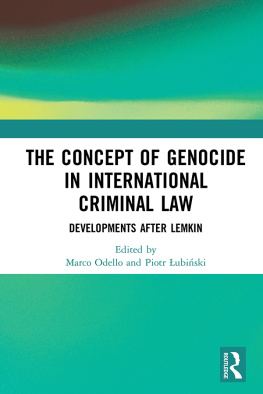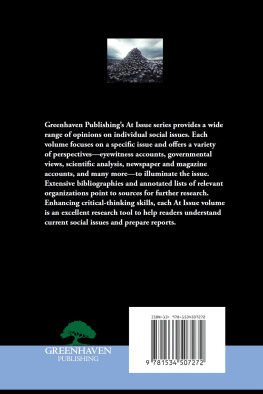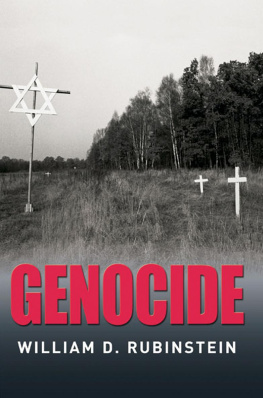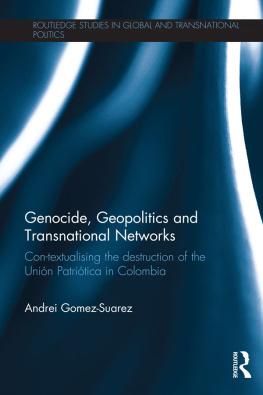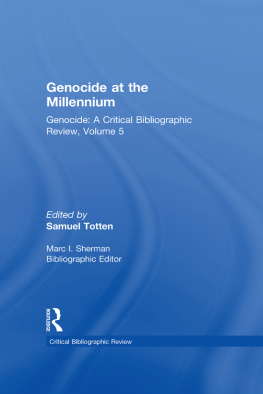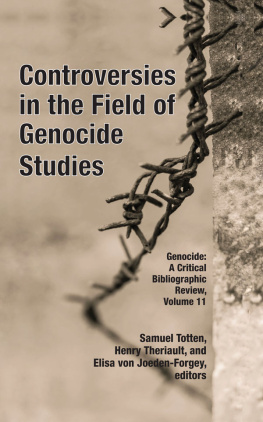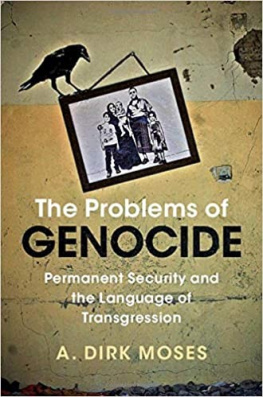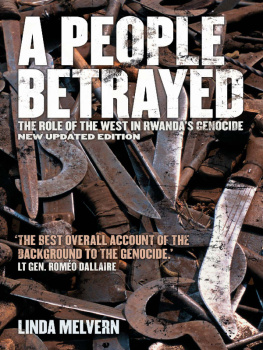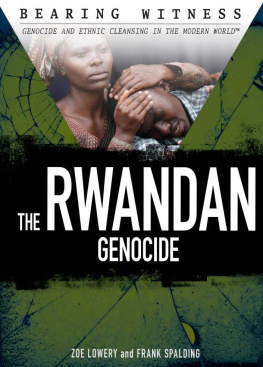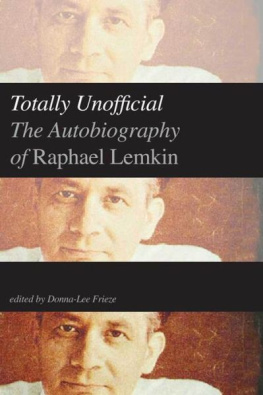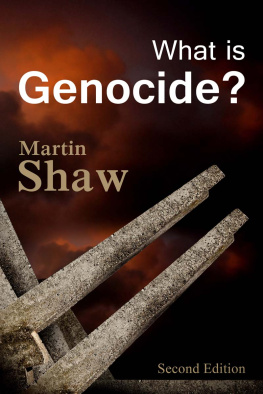The Concept of Genocide in International Criminal Law
This book presents a review of historical and emerging legal issues that concern the interpretation of the international crime of genocide.
The Polish legal expert Raphael Lemkin formulated the concept of genocide during the Nazi occupation of Europe, and it was then incorporated into the 1948 Convention on the Prevention and Punishment of the Crime of Genocide. This volume looks at the issues that are raised both by the existing international law definition of genocide and by the possible developments that continue to emerge under international criminal law. The authors consider how the concept of genocide might be used in different contexts, and see whether the definition in the 1948 convention may need some revision, also in the light of the original ideas that were expressed by Lemkin. The book focuses on specific themes that allow the reader to understand some of the problems related to the legal definition of genocide, in the context of historical and recent developments.
As a valuable contribution to the debate on the significance, meaning and application of the crime of genocide the book will be essential reading for students and academics working in the areas of Legal History, International Criminal Law, Human Rights, and Genocide Studies.
Marco Odello, PhD (Madrid), LLM (Nottingham), LLB (Rome), is Reader in Law at Aberystwyth University.
Piotr ubiski, PhD, is Senior Lecturer at the Institute of Security and Civic Education, Pedagogical University, Krakow, Poland.
First published 2020
by Routledge
2 Park Square, Milton Park, Abingdon, Oxon OX14 4RN
and by Routledge
52 Vanderbilt Avenue, New York, NY 10017
Routledge is an imprint of the Taylor & Francis Group, an informa business
2020 selection and editorial matter, Marco Odello and Piotr ubiski; individual chapters, the contributors
The right of Marco Odello and Piotr ubiski to be identified as the authors of the editorial material, and of the authors for their individual chapters, has been asserted in accordance with sections 77 and 78 of the Copyright, Designs and Patents Act 1988.
All rights reserved. No part of this book may be reprinted or reproduced or utilised in any form or by any electronic, mechanical, or other means, now known or hereafter invented, including photocopying and recording, or in any information storage or retrieval system, without permission in writing from the publishers.
Trademark notice: Product or corporate names may be trademarks or registered trademarks, and are used only for identification and explanation without intent to infringe.
British Library Cataloguing-in-Publication Data
A catalogue record for this book is available from the British Library
Library of Congress Cataloging-in-Publication Data
A catalog record has been requested for this book
ISBN: 978-0-367-85819-3 (hbk)
ISBN: 978-1-003-01522-2 (ebk)
Dedicated to Ola, Zosia, Jurek and my Mum Piotr
Marco Odello, PhD (Madrid), LLM (Nottingham), LLB (Rome), is Reader in Law at Aberystwyth University. He teaches International Law, International Humanitarian Law, Human Rights Law, and Comparative Public Law. He is a member of the International Institute of Humanitarian Law. He has been a guest lecturer at several institutions including the NATO School (Oberammergau); the International and European Doctoral Seminar at the University of Nice; the LLM in International Criminal Law, University of Turin and UNICRI; and the Summer University on Human Rights in Geneva. His publications include: The United Nations Declaration on the Rights of Indigenous Peoples in D. Short and C. Lennox (eds), Handbook of Indigenous Peoples Rights, 2016; (with F. Seatzu, eds) Latin American and Caribbean International Institutional Law, 2015; (with F. Seatzu, eds) Armed Forces and International Jurisdictions, 2013; (with F. Seatzu) The UN Committee on Economic, Social and Cultural Rights, 2012; (with S. Cavandoli, eds) Emerging Human Rights in the XXI Century, 2011; (with R. Piotrowicz, eds) International Military Missions and International Law, 2011.
Piotr ubiski, PhD (Aberystwyth 2016, Krakow 2012), is a lawyer and senior lecturer (Institute of Security Studies, Pedagogical University) in Humanitarian Law, International Criminal Law, Human Rights, and International Public Law. He attended programs and courses run by international institutions, such as workshops on rules of engagement conducted by the International Institute of Humanitarian Law Sanremo (Italy), the Seminar in the Centre for Studies and Research in International Law and International Relations (The Hague Academy of International Law, Netherlands) and the Warsaw Summer School on Humanitarian Law in Poland. He was also legal adviser to the Polish military forces in Afghanistan in 2008. His publications include: Human rights and humanitarian law in EU military operations in European Union with Brexit Ahead (ed. J. Barcik; in Polish), 2018; (editor) International Humanitarian Law of Armed Conflicts: Selected Issues, 2017; and four chapters in The International Humanitarian Law of Armed Conflict Manual (eds Z. Falkowski and M. Marcinko; in Polish), 2014.
Ruth Amir is Senior Lecturer at the Department of Political Science at Yezreel Valley College. Her research and publications focus on transitional justice, genocidal forcible child transfers, and forced migration. Among her recent books are: Twentieth Century Forcible Child Transfers: Probing the Boundaries of the Genocide Convention, Who Is Afraid of Historical Redress: The Israeli Victim-Perpetrator Dichotomy, The Politics of Victimhood: Historical Redress in Israel? (in Hebrew), and the co-edited volume Critical Insights: Anne Frank, the Diary of a Young Girl. Her two recent articles (2018) are Canada and the Genocide Question: It Did Happen Here and Law Meets Literature: Raphael Lemkin and Genocide Studies.
Tamas Vince Adany is Associate Professor of International Law and the Head of Department for International Law at the Pazmany Peter Catholic University in Budapest. He graduated as a lawyer (Doctor iuris) in 2000, and he holds a PhD in International Law and a masters degree in International Relations. He was a research assistant for the Hungarian Government in the GabcikovoNagymaros Case. He has advised a number of legal practitioners and has also assisted Hungarian government experts as well as several non-governmental organisations. During the nearly two decades of his academic career he has been teaching courses on various aspects of international law in several universities in Hungary, Poland, the Netherlands, Lithuania, and the United States. He is a member of the International and European Law Sub-commission of the Hungarian Academy of Sciences and the Hungarian Branch of the International Law Association.
Agnieszka Bieczyk-Missala is Dr hab. Assistant Professor at the Institute of International Relations, University of Warsaw. She is also Vice-Director for Academic Research and International Cooperation at the Institute of International Relations, University of Warsaw (since 2008), and has been an analyst at the Polish Institute of International Affairs (20062008), an expert at the European TUNING Programme (20092010), and a participant in the Network on Humanitarian Action (since 2006).
Kamil Boczek is a PhD student of the Faculty of Law in the Warsaw University. He specialises in international law, especially on the issues related to crimes against humanity, genocide, and human rights.

